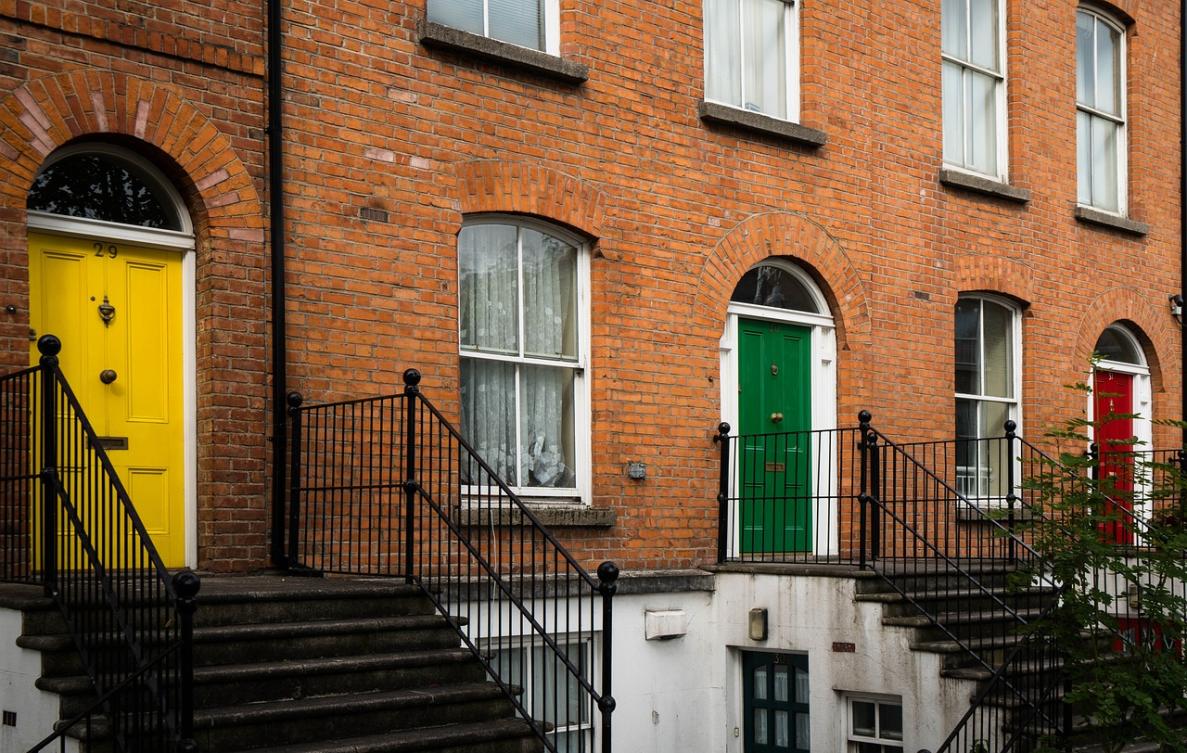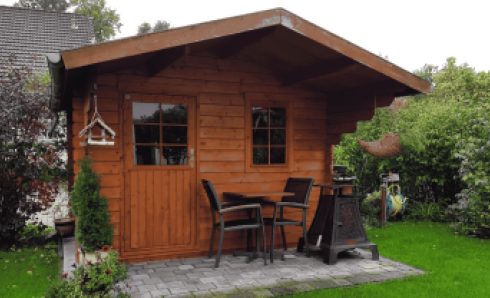Although numbers are much lower than in the past, home burglaries still occur more frequently than we’d like in Ireland and also around Europe. Having your home broken into and your most important possessions stolen is devastating, both fiscally and emotionally.
While it would be great to live in a perfect world where such occurrences don’t happen, unfortunately, we’re not quite there yet. With that in mind, knowing what steps to take after a break-in is essential, both for personal safety and insurance purposes.
Understanding Home Insurance Policies in Ireland
While overall break-ins in Ireland remain lower than pre-2019, there was a 7% rise between 2021 and 2022 - while figures during the holiday periods went up by nearly 30%.
It’s impossible to completely protect ourselves against burglaries and break-ins, but we can take several steps to mitigate the problem should the worst occur. Sentimental items such as family heirlooms can never be replaced, but home insurance plays a vital role in protecting against losses from burglaries.
Home insurance policies come in various forms, and what is available to you will depend on your living situation; are you a landlord, a tenant, or the owner of the home.
The significant difference, however, and one that is important to bear in mind when it comes to burglaries, is whether you have building or contents insurance - or both. Building insurance covers the home, windows, tiles, door, etc, while contents insurance covers everything in it.
If you only have buildings insurance and are a victim of burglary, unfortunately, you won’t be able to claim for the theft of items on your current policy. If you have contents insurance, however, you can. You might be able to claim for damage to the buildings due to the break-in (eg. if doors or windows have been broken in)
What Do You Do After a Break In?
Walking into your home and finding it ransacked and with obvious items missing can be deeply shocking. While you might feel like screaming and tearing your hair out, it’s important to remain calm and systematically go through a few crucial steps, starting with contacting the authorities, documenting the scene, and securing the property.
1. Contact the Authorities
You must contact the Garda as soon as possible. While tracking down stolen items is usually tricky, you’d be surprised by what a quick start can bring. If you believe the value of the stolen items is below €500, you can report the incident here, but if it’s over, you’ll need to contact your local Garda station.
When you contact the local authorities, you’ll be asked for specific information:
- Name
- Address
- Contact details
- A description of the property taken
- A description of any damage caused.
After you have reported the incident, a member of the Garda will likely be appointed to investigate the incident, and you will have a case number assigned. This may then be followed by a visit from the Garda at your home to take further details and to carry out investigations.
2. Document the Scene
Once the authorities have completed their investigation of the scene, or if they advise that this is not necessary, you should focus on documenting the scene for insurance purposes. The quickest and easiest way to do this is to simply take plenty of pictures while also noting down what has been stolen or damaged.
Walk carefully around your property and document areas you think have been affected, including prominent locations where objects are missing, such as a TV stand or computer desk. This will significantly speed up the process of claiming on your home insurance.
3. Secure the Property
If your property has been burgled, it’s probably no longer secure, so this should be your next stop. You don’t want thieves entering the house for a second time, so repairing broken windows or doors to prevent further losses or damages is imperative.
You’ll most likely need professional assistance, so call somebody immediately after documenting the scene and ask that they come as soon as possible. In the meantime, consider placing cardboard or wood over broken windows and putting the door back in place so things look secure from the outside. The worst thing you can do is leave a gaping hole in your home, as this is simply inviting opportunistic thieves passing by.
How to Make a Home Insurance Claim in Ireland?
Filing a claim is a critical step after a burglary to recoup losses and help you put the incident behind you. The whole process can take time, so getting it started as quickly as possible is in your best interest.
1. Contacting Your Insurance Provider
Every insurance provider should have a dedicated phone number that people can call to make a claim. Sometimes this can be done online, but people sometimes find it easier to talk to someone after such an event.
You will likely need to give your name, insurance details, and a rough description of what’s happened to get the ball rolling. From there, your insurance provider will be able to walk you through the rest of the steps.
2. Assessing the Damage
Assessing the damage and what items have been stolen is essential and needs to be done carefully and precisely; otherwise, this could hold up your claim. Your insurance provider will probably ask you for a breakdown of what’s missing and what’s been damaged, and the best way to do this is by creating a detailed inventory of stolen or damaged items.
You may also be asked to include the value of each item, and we highly recommend you answer truthfully at this stage. Insurance providers are experts in this field and usually have a pretty good idea of overall value.
3. Working with a Claims Adjuster
Once all of your information has been submitted, you might be visited by a claims adjuster who will interview you and may also ask to have a quick look around your property. These people work for insurance companies to evaluate the authenticity of claims and the extent to which the provider is liable.
It’s crucial that you interact civilly with them and answer all of their questions truthfully. It can be easy to jump to conclusions and assume that they don’t believe you, but this is just their job, and plenty of people submit fraudulent claims. You may be asked for additional documentation to back up your claim, and the claims adjustor reserves the right to visit you a second or even a third time.
4. Understanding the Claim Process
After the claims adjuster has concluded their work, they will submit a report to the insurance provider detailing whether your claim is viable and what kind of financial payment might be appropriate. Your insurance company will then correlate this with your claim, and a final settlement offer will be sent to you. Alternatively the offer may come directly from the Loss Adjuster.
If your insurance company have not instructed a Loss Adjuster a Claims Handler from the Insurance Company will deal with you directly in relation to your claim. This is usually done for lower value claims and it means that an inspection by a Loss Adjuster is not required.
5. Dealing with Disputes and Claim Denials
It’s not uncommon for disputes to arise from insurance claims. This usually happens when the settlement offer is lower than the policyholder expected. If you believe your offer is unacceptable, you can discuss this with the Claims Handler or Loss Adjuster and they will ask you to provide reasoning and relevant evidence.
Another possible outcome is that your claim could be denied outright. This happens if it is established that there is no cover in place. In rare cases an insurance provider believes the entire claim is fraudulent or that the policy has been invalidated. If this happens, again, you can appeal.
6. Timeframes and Expectations
Timeframes for settlements can vary depending on the circumstances of each case. Every claim is different, so giving a precise timeline is impossible. Complexities around the claim or disputes can stretch out the process by quite a bit.
For simple, straightforward claims, it can sometimes be done in a matter of weeks.
Tips to Prevent Future Break-Ins
While it’s impossible to guard ourselves against break-ins completely, there are several measures you can take to reduce the chances.
Home Security Measures
You can use various home security measures, such as alarm systems, security cameras, and reinforced doors and windows, to lower your chances of a break-in. Which of these you use, and to what extent, will depend on the home's characteristics and the homeowner's needs. Those with an alarm system are 4.5 times less likely to be burglary victims, showing just how important they can be.
Insurance Coverage
Having adequate insurance coverage can provide peace of mind and financial protection in case of future burglaries. It’s important to review and update insurance coverage to ensure it aligns with the value of the home's contents.
Neighbourhood Watch Programs
Neighbourhood watch programs play a huge role in preventing burglaries, and you’ve almost certainly got one close by. These work by establishing a community consensus to keep an eye out for any suspicious behaviour and report it directly to the Garda or the head of the community watch.
There are thousands of effective neighbourhood watch groups around Ireland, so if you’re interested in joining one, simply ask around your local area, or search online. If there isn’t one nearby, why not start your own?
What is the Psychological Impact of Home Burglary?
Being the victim of a home burglary can have a profound psychological impact, including feelings of violation and insecurity. It’s important to acknowledge these emotions instead of ignoring them.
Common emotional responses include shock, anger, and anxiety, while symptoms of post-traumatic stress disorder (PTSD) that can occur in extreme cases. If not addressed, this can lead to potential long-term effects like sleep disruption and behavioural changes.
If you are experiencing problems after a break-in, seeking professional help can have a tremendous effect. Simply speaking with somebody about the events can lighten the mental load and allow you to move forward.
It’s also a good idea to take some practical steps to recover emotionally, like improving home security and openly discussing the experience with friends or family. Improving security will give you added peace of mind, while being open about the situation means it doesn’t become a dark memory you avoid at all costs.
Conclusion
Being the victim of burglary can be a harrowing experience, but it shouldn’t stay with you any longer than necessary.
Having the right kind of home insurance is the only way to protect against the financial impact of burglaries, and 123.ie provides comprehensive home insurance coverage and exceptional customer service. We stand out from the competition because of our prompt claims service and easy-to-understand policies, which means we can get you back on your feet in no time at all.





